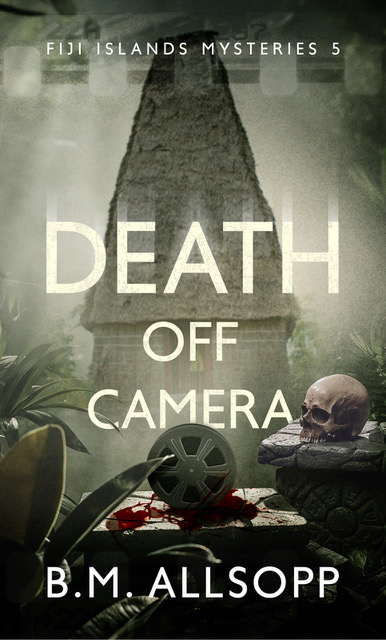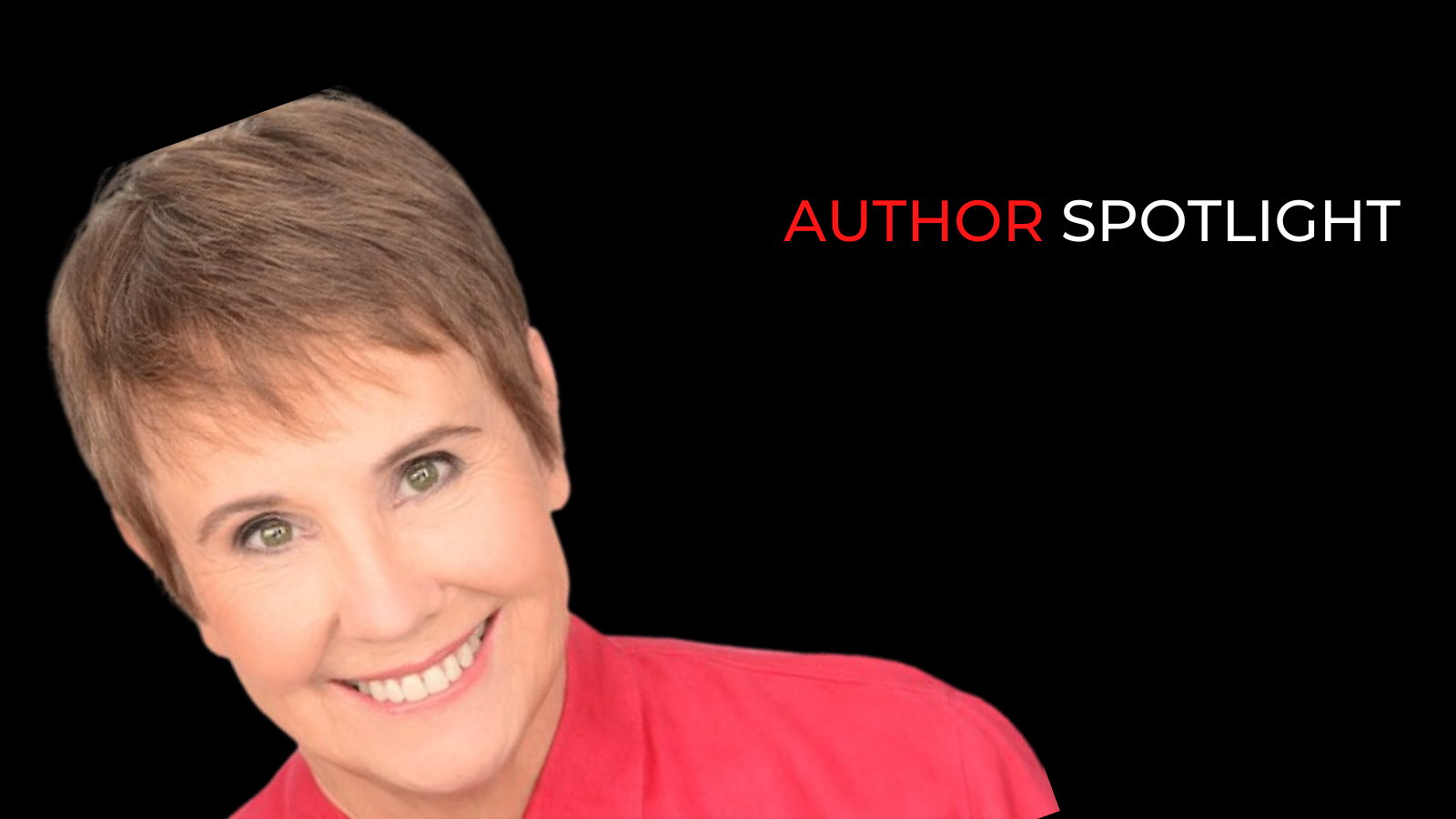For the March Author Spotlight, Sydney author Natalie Conyer spoke to fellow Sydneyite B.M. Allsopp about Death Off Camera, the fifth book in her popular Fiji Islands Mysteries series, starring policeman and rugby legend Joe Horseman. Here, Natalie says, the death of a contestant in a Survivor-like reality series is the start of a thorny investigation for Horseman and his team. Impressive for its realistic portrayal, both of life in Fiji and reality TV, Death Off Camera is a satisfying, engrossing treat for crime fiction lovers.
Death Off Camera is notable for its fresh, detailed look at life in Fiji. How do you come to know the area so well, and why did you choose it as a setting for this series?
I’ve always been drawn to islands, especially the South Pacific beauties. In 2002, when I was offered a job at the University of the South Pacific in Fiji, the stars aligned and my husband and I spent four exciting years living in Suva and growing to love those glorious islands and their peoples.
I probably wouldn’t have written a novel at all if I hadn’t found Fiji. A crime fiction fan from way back, it was in Fiji I discovered Alexander McCall Smith’s captivating No 1 Ladies Detective Agency, which put Botswana on the world map. Often irritated that Fiji was seen purely as a holiday destination, I wondered if a mystery series could shine a more realistic light on the country. However, my job was demanding and it wasn’t until I returned to Sydney and semi-retirement that this seed of an idea germinated. Fiji is the inspiration of my police procedural series, not just the setting.
One of the enjoyable features of this book is its look at what happens behind the cameras of reality television. What research did you do to achieve such a convincing portrayal?
Death Off Camera demanded a lot of research before I could even think much about the plot. As a reality-show virgin, I sampled different genres first, then watched two entire series: Survivor, shot in Fiji, and Shipwrecked, in the Cook Islands. Abundant publicity material for the shows was also a rich source: interviews with competitors and executives, and trailer-docos about the making of the shows. Possibly the single most useful source was a 10-page PDF listing all the jobs on a film set and describing the duties of each. Finally, I discovered what a Best Boy does! This print-out sat within reach on my desk while I worked on Death Off Camera. I consulted it every day.
But in the middle of this internet tangle, a small miracle happened which opened the Staff Only door. An email lobbed in from a New Zealand film director who’d borrowed my first book, Death on Paradise Island, from his local library. He loved it and wrote to tell me so. I explained my work-in-progress and he agreed to help me when the internet couldn’t. This wasn’t always convenient. For example, when he shocked me with the fact that a Survivor-type show would employ up to two hundred crew on location, I had to rethink most of my early decisions! He also told me about crimes on set, which the TV publicity material understandably omitted. What’s more, he read my final manuscript for film-world mistakes and corrected several remaining errors in terminology. How lucky was that?
What are the advantages and disadvantages of writing a series with characters you and your readers already know?
There are two big advantages. First, I don’t have to conjure up new main characters for each novel. Second, Inspector Horseman and Sergeant Singh can develop their own lives from one book to the next, which adds depth and realism to their personalities. Readers tell me they look forward to the detectives’ personal stories from book to book.
There are also two small disadvantages in a series like Fiji Islands Mysteries, where each book can be read as a standalone novel. The first problem is how to introduce the lead detectives to the new reader starting on Book 3, without boring a reader who got to know them well in Book 1. Continuity can be another problem, so I have to do much checking and cross-referencing to keep the detectives’ back-stories, speech, and behaviour consistent. This process can be even trickier with recurring minor characters.

One of the features of Death Off Camera is its compassionate tone. While you don’t avoid real life, your approach is on the whole more humane than most current crime fiction, and all your characters – whether criminal or not – are treated with understanding. Could you expand on this a little?
As an author, I’ve tried to write darker, mean-street stories, and my murders are quite dreadful. But my setting directs me down a pleasant beach-side road past pedestrians who smile and wave as the police vehicle blows exhaust fumes in its wake. I guess I just can’t help my love for Fiji coming through.
My detectives have a role in the mood of the books, too. Horseman’s upbringing makes him a decent man. While he despises dishonesty, he recognises what can drive an individual to crime, even murder. This quality is key to him nailing the culprit. I think it’s fair to say Sergeant Singh, more of a stickler for process, is becoming more understanding under Horseman’s influence in each book. However, neither detective feels a trace of compassion for the murderer in Death Off Camera.
What’s next for you? Are you working on something new, and can you give us a taste?
I’m still tossing around ideas for Horseman’s next case. Suva is partly a sleepy island port town, partly a key Pacific hub for diplomatic posts and NGO headquarters. It’s a town ripe for international intrigue. Possibly a body in an embassy? Or not. I know the question in many readers’ minds concerns a future for DI Horseman and DS Singh. I can’t answer that one yet.
More info here.
